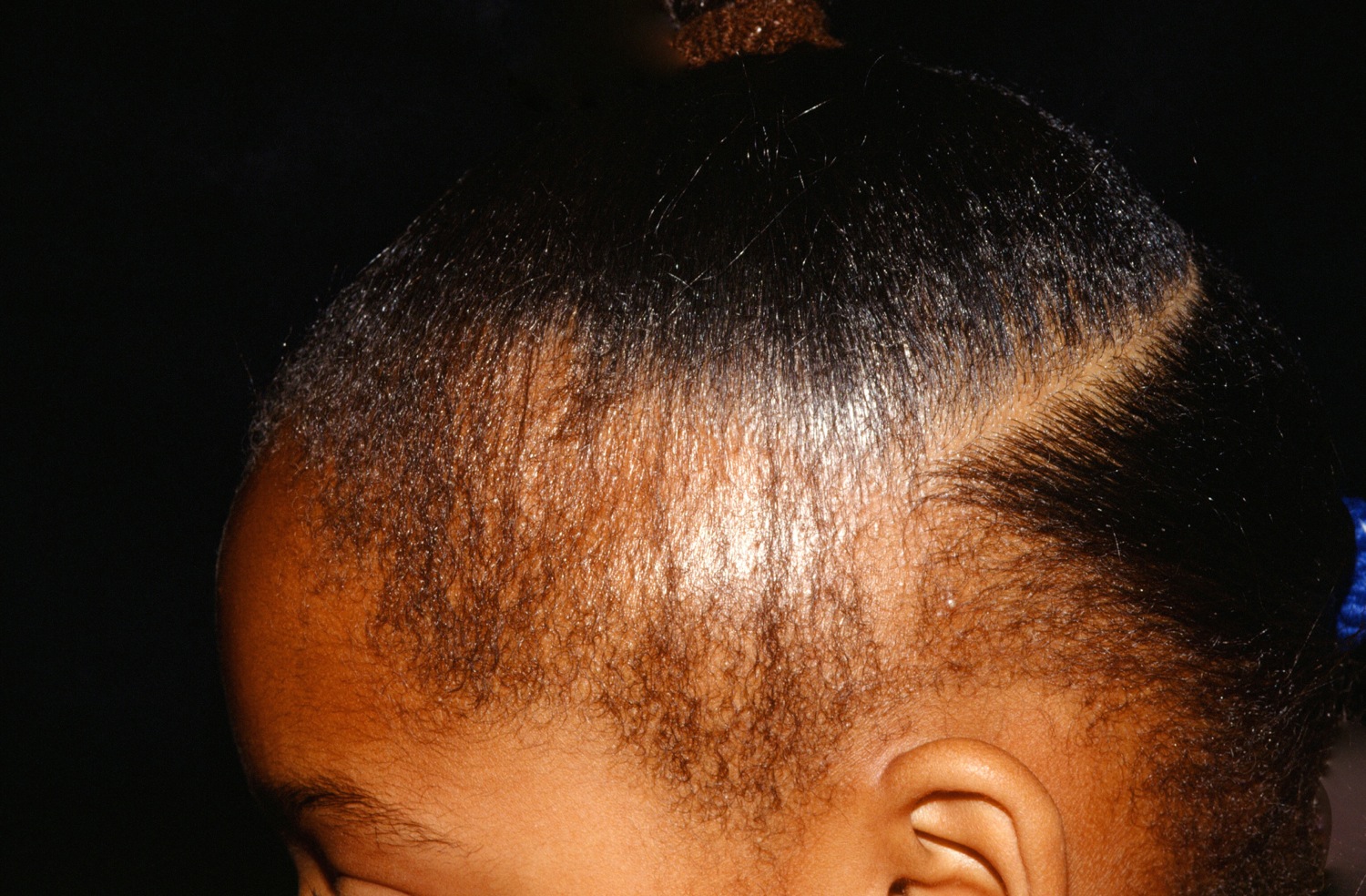
A young black girl with alopecia at the margins.

A young black girl with alopecia at the margins.
Traction Alopecia (TA) is the loss of hair from chronic tension. Young, black girls who wear tight pony tails or braids are most commonly affected. The alopecia typically starts at the edges of the section of hair involved where the traction is the greatest, e.g., at the hairline. Inflammation is usually not seen, although follicular pustules may occasionally occur. Over time, scarring occurs and the alopecia becomes permanent. Adults often show bitemporal alopecia.
A young black girl is seen to have alopecia at the margins of the gathering for the pony tail or braid. Pustules may occur. Over time, scarring occurs and the alopecia is permanent. In the older woman, frontal fibrosing alopecia (FFA) must be excluded.
The fringe sign has been coined, denoting fine, miniaturized hairs remaining along the frontal hairline. However, a "pseudo-fringe sign" may be seen in FFA.
It should be noted that hair care in Black patients can be complex. Hairstyling among Black women often is a lengthy process and often results in relationship bonding with the hair care giver, in turn imparting hair care traditions to the next generation. Therefore, a well-received discussion about TA prevention not only has an impact on the patient but potentially on a multigenerational family of women and friends.
Homepage | Who is Dr. White? | Privacy Policy | FAQs | Use of Images | Contact Dr. White